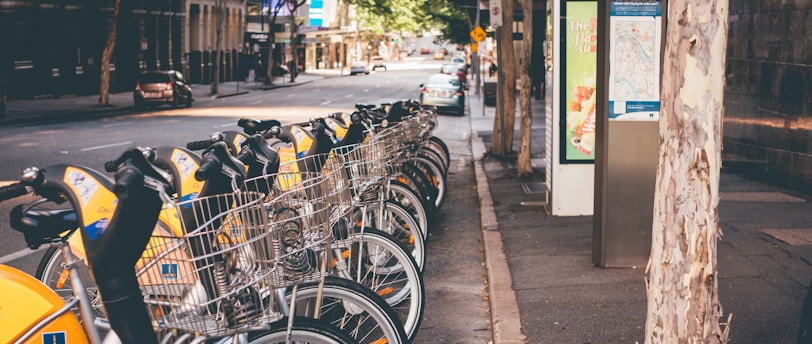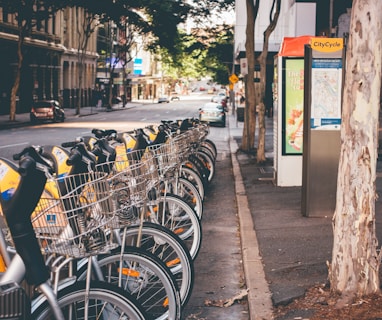How sustainable cities can create a more livable and equitable future for everyone
Sustainable cities are designed to meet the needs of the present without compromising the ability of future generations to meet their own needs. They are characterized by efficient use of resources, reduced pollution, and a healthy environment.
9/9/20234 min read


Introduction
The world is urbanizing at an unprecedented rate. By 2050, it is estimated that two-thirds of the world's population will live in cities. This rapid urbanization is putting a strain on our resources and environment.
Sustainable cities are designed to meet the needs of the present without compromising the ability of future generations to meet their own needs. They are characterized by efficient use of resources, reduced pollution, and a healthy environment.
What are the benefits of sustainable cities?
There are many benefits to sustainable cities, including:
Improved air quality: Sustainable cities reduce pollution by using cleaner energy sources and by promoting walking, biking, and public transportation. This can lead to a healthier environment and improved respiratory health for residents.
Reduced water consumption: Sustainable cities conserve water by using rainwater harvesting, greywater recycling, and water-efficient appliances. This can help to mitigate the effects of drought and water scarcity.
Increased energy efficiency: Sustainable cities use less energy by building energy-efficient buildings and by using renewable energy sources. This can help to reduce greenhouse gas emissions and combat climate change.
Reduced waste: Sustainable cities reduce waste by composting, recycling, and reducing packaging. This can help to reduce the amount of waste sent to landfills and incinerators.
Improved public health: Sustainable cities provide residents with access to green spaces, which have been shown to improve mental and physical health. This can lead to a healthier and happier population.
Increased economic opportunities: Sustainable cities create jobs in the clean energy sector and in other industries that support sustainability. This can help to boost the economy and create a more equitable society.
How can we create sustainable cities?
There are many things that can be done to create sustainable cities, including:
Investing in renewable energy and energy efficiency: This can help to reduce our reliance on fossil fuels and mitigate the effects of climate change.
Promoting walking, biking, and public transportation: This can help to reduce traffic congestion and air pollution.
Conserving water and reducing waste: This can help to protect our water resources and reduce the amount of waste sent to landfills.
Protecting open space and green infrastructure: This can help to improve air quality, reduce noise pollution, and provide a habitat for wildlife.
Planning for climate change: This can help to mitigate the effects of climate change and make our cities more resilient.
Creating a culture of sustainability: This can be done by educating the public about sustainability and by making it easy for people to make sustainable choices.
The future of urban living
Sustainable cities are the future of urban living. They offer a way to meet the needs of our growing population while protecting our resources and environment. By investing in sustainable cities, we can create a better future for everyone.
Here are some stats and data from India and around the world regarding sustainable cities:
India
India is one of the most rapidly urbanizing countries in the world. By 2050, it is estimated that 800 million people will live in Indian cities.
This rapid urbanization is putting a strain on India's resources and environment.
Some of the challenges facing sustainable cities in India include:
Air pollution: India has some of the worst air pollution in the world. This is due to a number of factors, including the use of fossil fuels, traffic congestion, and industrial pollution.
Water scarcity: India is a water-stressed country. Many cities are facing water shortages, and this is expected to worsen in the future.
Waste management: India generates a large amount of waste each year. This waste is often not disposed of properly, which can pollute the environment and pose a health risk.
Climate change: India is already experiencing the effects of climate change, such as more extreme weather events and rising sea levels. These effects are expected to worsen in the future, which will put a strain on sustainable cities.
Around the world
The world is facing a number of challenges in creating sustainable cities, including:
Climate change: Climate change is already having a negative impact on cities, and this is expected to worsen in the future.
Resource scarcity: Cities are facing increasing competition for resources, such as water, energy, and land.
Inequality: Cities are becoming increasingly divided between the rich and the poor. This can make it difficult to implement sustainable solutions.
Technology: There is a need for new technologies to help cities become more sustainable.
Despite these challenges, there are a number of things that can be done to create sustainable cities, including:
Investing in renewable energy and energy efficiency: This can help to reduce greenhouse gas emissions and mitigate the effects of climate change.
Promoting walking, biking, and public transportation: This can help to reduce traffic congestion and air pollution.
Conserving water and reducing waste: This can help to protect our water resources and reduce the amount of waste sent to landfills.
Protecting open space and green infrastructure: This can help to improve air quality, reduce noise pollution, and provide a habitat for wildlife.
Planning for climate change: This can help to mitigate the effects of climate change and make our cities more resilient.
Creating a culture of sustainability: This can be done by educating the public about sustainability and by making it easy for people to make sustainable choices.
By taking these steps, we can create sustainable cities that are livable, equitable, and resilient.
Green Goods Guide
In addition to taking steps to support sustainable cities, we can also make changes in our own lives to live more sustainably. Here are a few tips:
Choose sustainable products: When you're shopping, look for products that are made from recycled materials or that are produced in an environmentally friendly way.
Eat less meat: Meat production is a major source of greenhouse gas emissions. By eating less meat, we can reduce our impact on the climate.
Drive less: Driving is a major source of emissions. If you can, walk, bike, or take public transportation instead of driving.
Conserve water: Water is a precious resource, and we need to use it wisely. Take shorter showers, fix leaky faucets, and water your lawn less often.
Reduce, reuse, and recycle: When you reduce the amount of stuff you buy, you also reduce the amount of waste you produce. Reuse items whenever possible, and recycle everything else.
By making these changes, we can all help to create a more sustainable future for our planet.
Related SEO Keywords:
sustainable cities
urban sustainability
climate change
sustainability
renewable energy
energy efficiency
water conservation
waste reduction
recycling
green goods
green living
We hope this blog post has been helpful. Thank you for reading!
